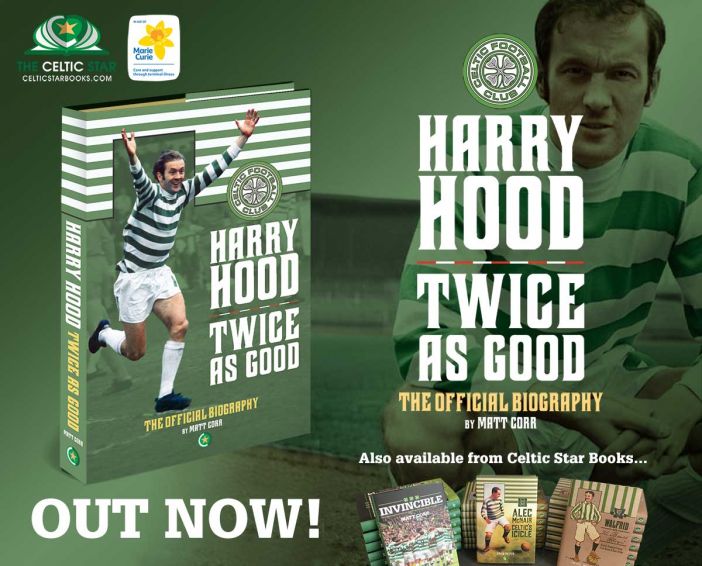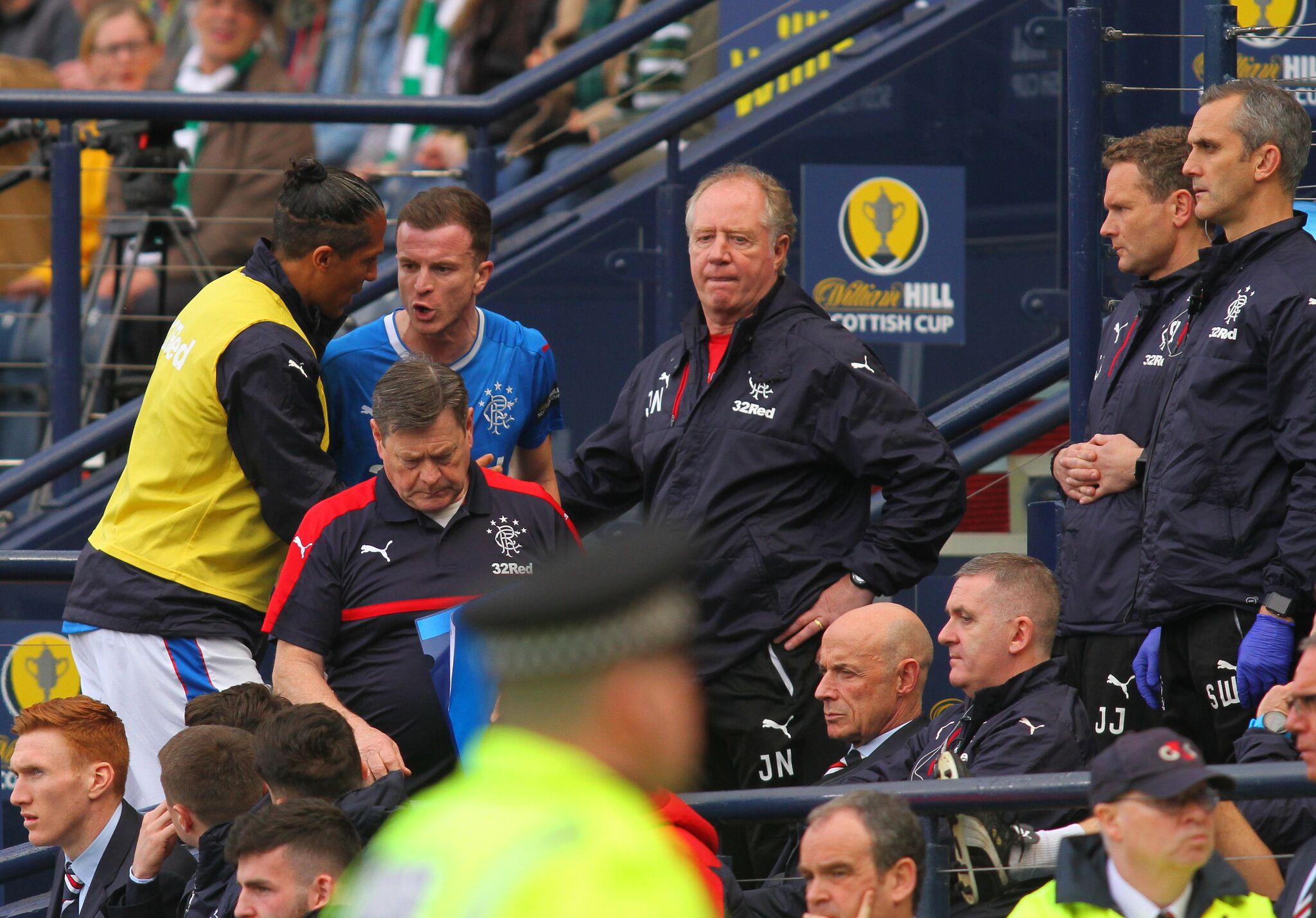Celtic Winning the League – 50 Years Ago…
Season 1971/72 was another remarkable season in the history of Celtic FC. There were spectacular moments in all the other three competitions, good and bad, but the Scottish League was, in the main, a solid and steady progression to the Championship, which of course, being the seventh in a row, beat the record set by Maley’s Edwardians now well over 60 years ago.
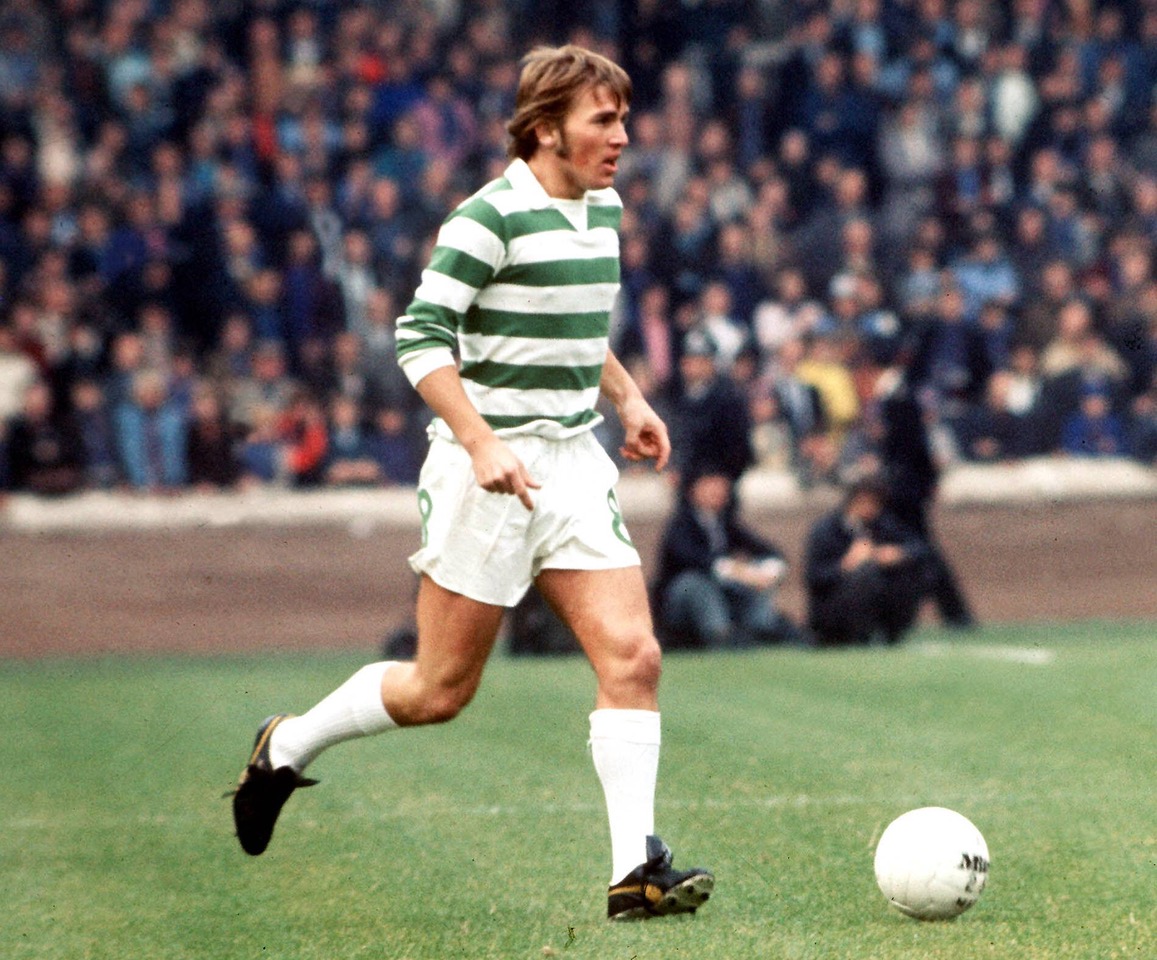
Celtic lost only two League games – one to St Johnstone (a hard team who often gave Celtic a great deal of trouble in those days) and one to Hearts when the season was virtually all over. Two great players emerged this season. One was Kenny Dalglish who had been knocking on the door for some time and now came good, and the other was John “Dixie” Deans signed in what seemed to be either a fit of pique or a panic attack on the part of Jock Stein. The pair of them were outstanding successes.
Rangers had a curious season. Celtic had beaten them three times (all at Ibrox) by the middle of September, and they then more or less disappeared out of the League race, finishing 16 points behind Celtic in third place. They were defeated by Hibs in the semi-final of the Scottish Cup…and then won the European Cup Winners’ Cup – something that said a great deal about the strength of Scottish football at that time! Cynics however pointed out that their European success came in the only tournament where they did not have to face Celtic!
Celtic’s European foray ended heartbreakingly in a penalty shoot-out defeat to Inter Milan at the semi-final stage. This was a shame because it was felt that Celtic could do well in the final, but neither they nor Inter Milan could break each other’s defensive iron curtain. Fortunately for Dixie Deans, the only man to miss a penalty, he bounced back and scored a hat-trick in the Scottish Cup final.
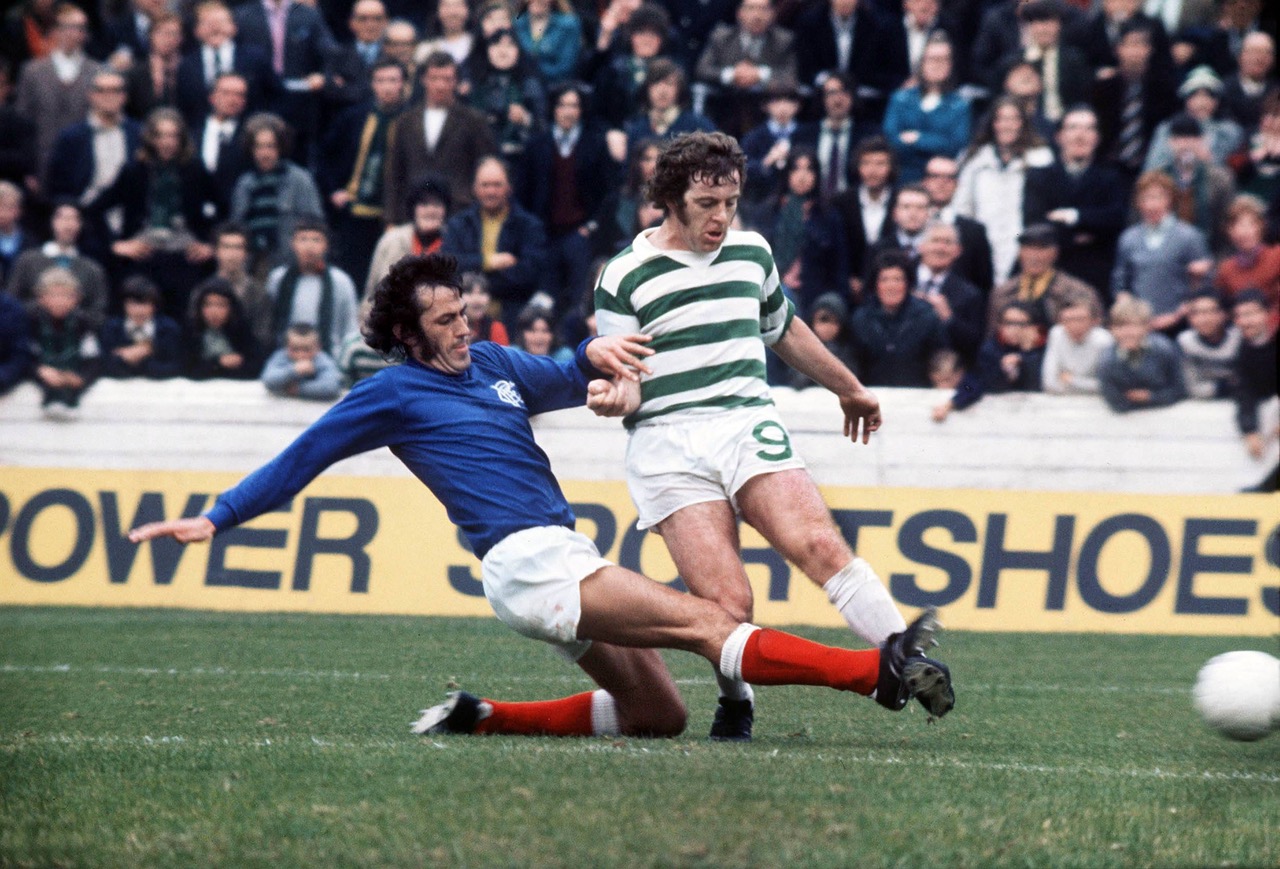
Deans had joined Celtic in the wake of the previous Cup final, the League Cup final in October. Without Billy McNeill, Celtic went into the game against little fancied Partick Thistle and managed to lose 4-1. Stein’s reaction was to buy Dixie Deans from Motherwell, whom one suspects that Motherwell were quite keen to lose and get money for. Deans was currently serving a suspension and had a reputation for trouble making. It turned out to be one of Stein’s best ever moves.
The League campaign opened in astonishing fashion with a 9-1 defeat of Clyde at Celtic Park. It will be recalled that in the last League meeting of the last season, Celtic beat the same opposition 6-1 at Celtic Park. Here the slaughter of the East End neighbours continued with Bobby Lennox scoring a hat-trick with his phenomenal speed, and the very impressive young Lou Macari adding a couple. Then came a 3-2 win at Ibrox. Rangers had a fair amount of the play that day, but, having been beaten by Celtic 3-0 and 2-0 in the League Cup, were psyched out once again by the green and white jerseys. Two wins over Morton and Airdrie followed, the win over Morton being particularly satisfying as the Greenock men had defeated Celtic in the League Cup sectional stage.
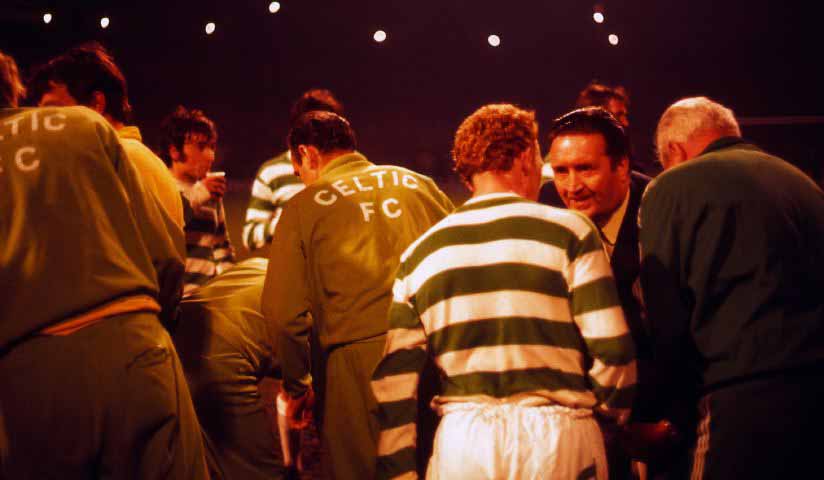
Then came the visit of St Johnstone. St Johnstone usually played well against Celtic and today they won 1-0, a feature of the game being the many easy chances that Celtic missed with Macari and Wallace particularly profligate, and Jimmy Johnstone earning the wrath of the crowd by his insistence on beating a man twice when once would have done. Such a poor forward display had rarely been seen at Celtic Park since the pre-Stein days, and it might have been this game which started Stein thinking about Dixie Deans. The League Cup final (another awful display by the forwards) may have forced him into action, but it was possibly this game against the men from Perth which planted the seed.
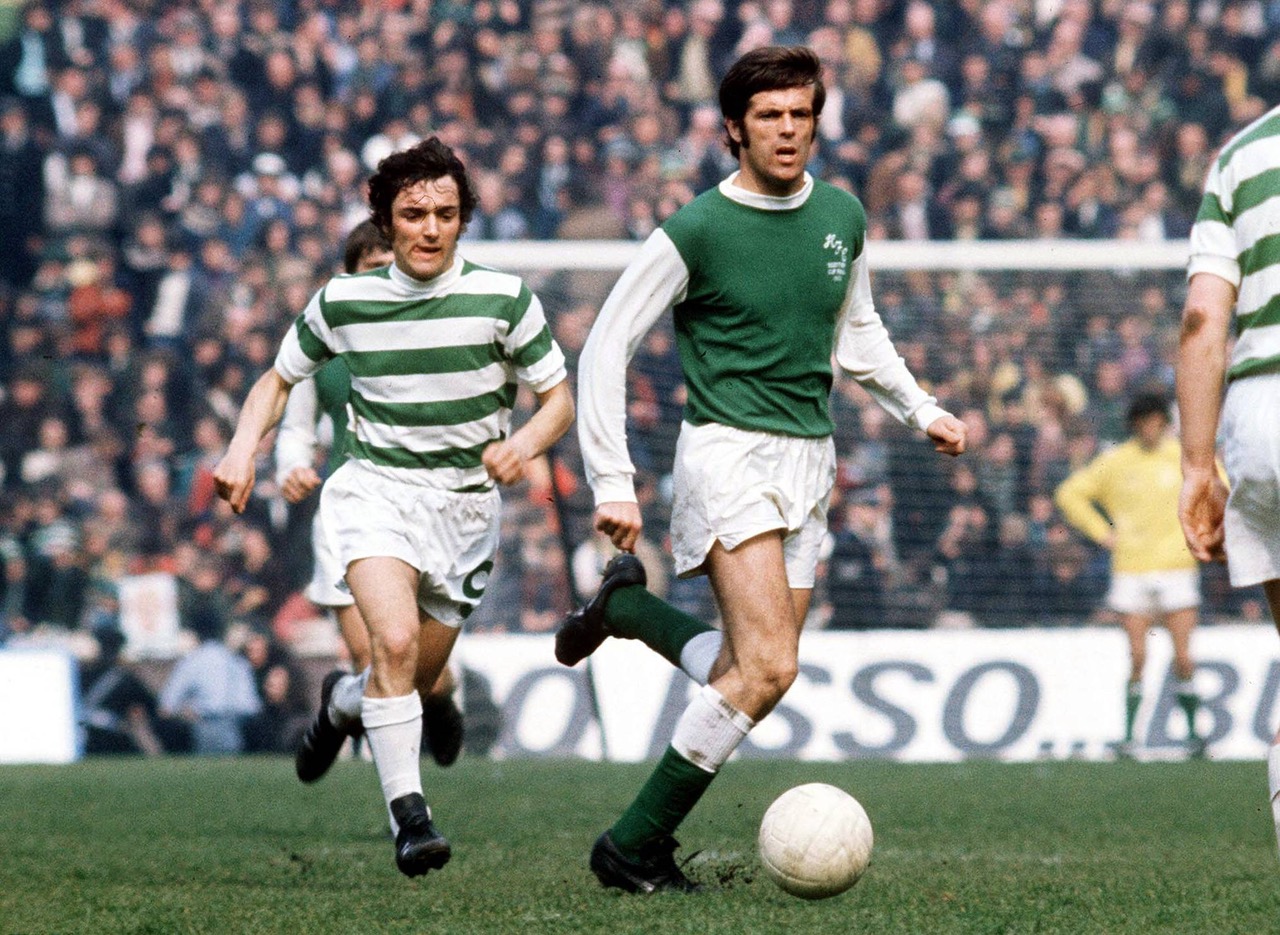
Stein’s ire was a terrible thing, and there was a lot less feckless forward play in future. The following week saw Celtic win 1-0 at Hibs with a goal from Lou Macari, and there was further evidence of the development of the young “Quality Street” kids the next week when Kenny Dalglish scored a hat-trick to beat Dundee. Hughes and Wallace, having fallen badly out of favour with Jock Stein were dispatched to Crystal Palace, and several others of the old guard, even Murdoch, Johnstone and McNeill were told that they would have to up their game.
One of their best games of the season came at Tannadice Park on 13 November, a week after a hard fought draw against Aberdeen, the closest challengers. The Aberdeen game had been characterised by a bizarre own goal from Billy McNeill, after which some Celtic supporters began to ask questions about his future. But at Tannadice, a lacklustre Celtic were 0-1 down at half time to Dundee United, a team who always played well at home. It was depressing but once again “a button was pressed”. Jimmy Johnstone was given a roving commission and was seen on the left as often as on the right, Kenny Dalglish moved forward, and by the 80th minute Celtic were 5-1 up, scoring more or less at will, and the Tannadice home support evaporated as Harry Hood scored twice (one from a penalty) and Lennox, Macari and Dalglish scored the others. No-one questioned Billy McNeill’s future after this game!
The last six games of the year saw six emphatic wins including three 5-1 victories and the year of 1971 was concluded on Christmas Day with a 3-2 win over Hearts at Celtic Park, the last time that Celtic played a game on Christmas Day itself, the dropping of the Christmas Day fixture being an indication that Christmas was now slowly becoming as important as New Year in Scotland.
All this meant that Celtic entered 1972 one point ahead of Aberdeen who were similarly enjoying a good run of form. Following the hammering of Clyde, Celtic took on Rangers at Parkhead. With the teams locked at 1-1 and neither team having any great advantage, the unlikely source of Jim Brogan the left back scored with a header, appearing out of nowhere to do so.

A point was dropped against Morton on 8 January, but apart from that, progress continued to be made. By this time, a very significant political thing happened when a miners’ strike was called. It would be February before the effects were felt, and it did not have any great impact on the football season (as it would in 1974, for example) but it certainly did effect the population at large with power cuts and some frightening scenes on picket lines. The Government gave in, but this issue would not go away. At the end of January, there was also the horrendous event in Northern Ireland, now known as Bloody Sunday.
Aberdeen had already dropped a few more points, but were still in the race when they presented Celtic the League Championship with an astonishing own goal. On Leap Year’s Day 29 February, they transferred centre half and captain Martin Buchan to Manchester United! It was the equivalent of Winston Churchill selling the Spitfires in the middle of the Battle of Britain, and it can only be explained away in terms of sheer greed with little concern for the interests of their supporters. It got its own reward as the Dons title challenge now fizzled out and it would take several years before their supporters forgave them.
The folly of selling Buchan came apparent when Celtic came to Aberdeen on 11vMarch and both teams played out a tight 1-1 draw. Aberdeen had to win to have any sort of chance, but the draw meant that even Jock Stein himself, usually reluctant to make any premature statements, said that it was Celtic’s title.

Celtic were now more concerned with other competitions, but they suffered a bad blow on 25 March when young Danny McGrain, a very impressive full back, fractured his skull in a collision with a Falkirk player. Celtic still won 1-0, and the title was confirmed on 15 April with four games to spare when Celtic beat East Fife 3-0 before a packed crowd of 12,000 at Bayview, Methil, the atmosphere reminding the locals of their own great days of twenty years ago.

And so Celtic had beaten their own record of 6 in a row between 1905 and 1910. They seemed capable of going on for some time yet as far as the League were concerned, such was their ability to paralyze opponents. There was also the perpetual producing of young talent as the great Celtic side kept re-inventing itself, and doing so seamlessly.
David Potter


